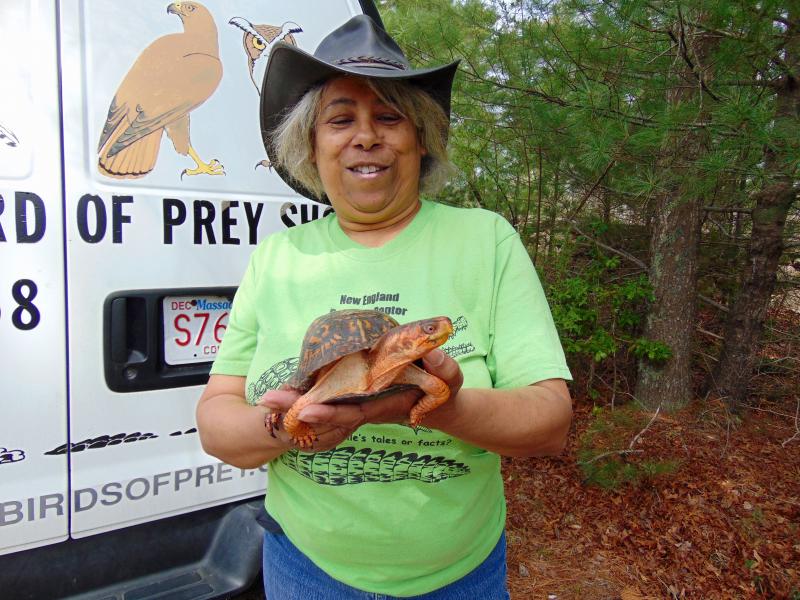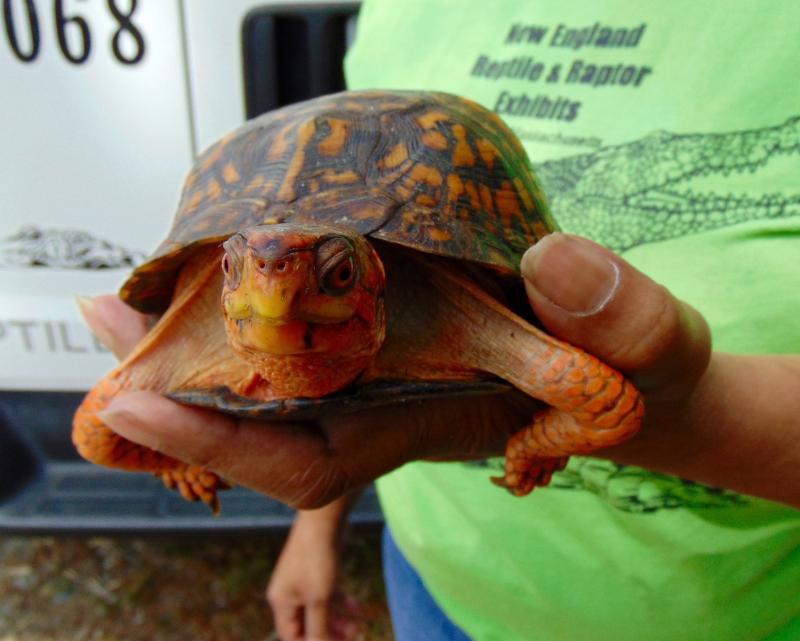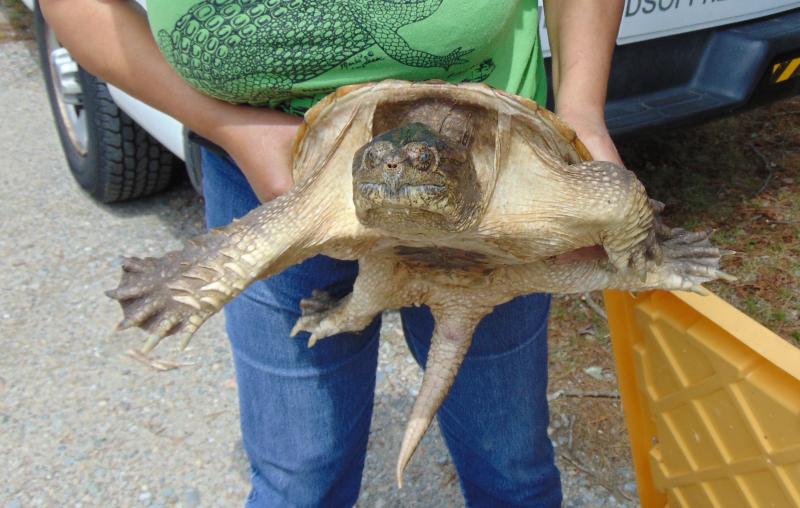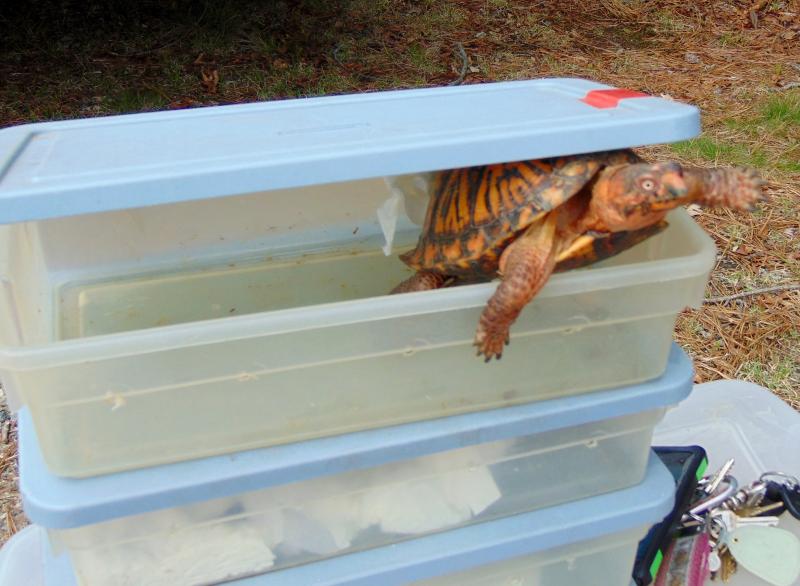Mattapoisett Land Trust event a turtle success
The weekends are for taking it slow. And that’s just what members of the Mattapoisett Land Trust did on Saturday with a presentation about turtles.
Marla Isaac, from the New England Reptile and Raptor Center, came by the Mattapoisett Friends Meeting House on Saturday to show off a variety of turtles, as well as teach people about protecting the current turtle populations.
Isaac has been rehabilitating and taking care of turtles since the 1970s, and said she has seen the eastern box turtle population decrease significantly since then.
“They were all over southeastern Massachusetts,” she said. “No one would have imagined their decline.”
According to Isaac, the decline was all due to human activity. Lax or nonexistent animal trading laws meant people were able to obtain these wild animals quite easily, and they were popular in pet stores.
“You used to be able to order water moccasins through the mail,” Isaac said of the laws at the time.
Developing land also proved to be problem for the eastern box turtle, which makes its home in uplands.
“Wetlands are protected, but not all species live in wetlands,” Isaac said.
Turtles also have problems with roads, often times not crossing quickly enough to avoid being run over.
“Roads are the key killer of turtles,” Isaac said. “They just sit there. They look around like they’re sight-seeing.”
While the species is not currently endangered, they are a “species of concern,” Isaac said. One of the issues biologists are facing, is that box turtles are unable to be relocated when humans develop their land.
Box turtles will always stay in the same place, and if someone were to move them, they would turn around and try to find their way back home.
“They’ll kill themselves to do it,” Isaac said. “Relocation doesn’t work.”
Isaac hopes that relocating eggs will help move box turtles to safer areas and help bring the population back. She also encourages the public to help in a couple ways: report it to the police if you see people collecting turtles, and try to help out the box turtle census by communicating to the state’s biologists about turtle populations you see.




















